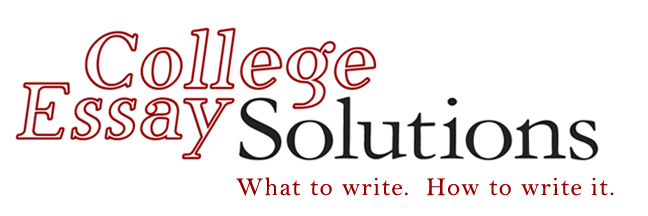There was an article in The New Yorker magazine this week about beloved non-fiction writing teacher, Bill Zinsser, author of the classic writing instruction book, On Writing Well. The author of the article, William Singer, was a student of Zinsser’s and states: “Our first imperative was to eliminate “clutter,” which Bill regarded as “the disease of American writing . . . unnecessary words, circular constructions, pompous frills, and meaningless jargon.”
This concept, I believe, can be of great help to the rising seniors who will soon be writing their college application essays. In the attempt to be erudite or profound, many essay writers will overstate their case, go on too long, unproductively digress or simply use too many words. This lack of economy works directly against them as, with a relatively modest word limit, it’s important to make every word have an impact of some kind. Clever metaphors and potent analogies can certainly add to the essay but the applicant has to make sure they 1) have some value other than “show off” writing and 2) they really work. In terms of circular constructions, one of the standards I set for my own students is that the essay needs to make one irrefutable point after another so that the reader – an Admissions Director or Committee member – keeps nodding his or her head in agreement. Circular arguments (this would be something that circles back on itself, for example, “I’m a good person because I’m good.”), on the other hand, make no point whatsoever; they are just words filling up the page.
Another reason “clutter” will work against the application essay writer is that Admissions Directors and Admission Committee members read a lot of essays; they will often “get ahead” of an essay and have a sense of where it’s going. This is unavoidable to some extent but Admission Directors are human beings and can also develop a level of impatience with essays that tread water instead of moving forward. Unnecessary words or restating the same point over and over will have them muttering under their breath, “Okay, I get it.”
To avoid this trap, reread your essays carefully and:
1. Make sure the points you are making are clear and concise.
2. Identify when a point has been made and move on to the next.
3. Read your essay out loud, to a friend or even to yourself. Those “extra words” will stand out more clearly and you’ll be able to eliminate them.
4. Use elevated language sparingly and skillfully.
5. Have something to say. You cannot effectively “pad” an essay. If you don’t have enough material or ideas, don’t repeat what you’ve already said, using different words (a common error, in my experience). Develop more content.
For more personal help with the Common Application essays, supplemental essays, or any other required college application essays, please contact Craig Heller directly at [email protected] or 818-340-1276.
